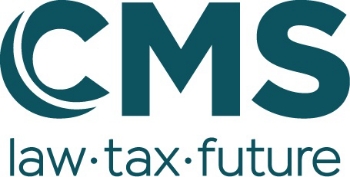On May 9 2017 the Federal Court of Justice (1 StR 265/16) decided for the first time that the establishment of a compliance management system designed to prevent breaches of the law can reduce fines in accordance with Section 30 of the Administrative Offences Act. The decision is of great importance in practice.
No corporate criminal law in Germany
Until now there has been no corporate criminal law in Germany, unlike other European countries. Therefore, criminal proceedings could be conducted only against a natural person, not a company. However, the corporate fine pursuant to Section 30 offers the option of fixing financial penalties against companies whose managerial personnel have committed criminal offences. Section 30 offers the option of setting a fine for legal entities or associations of persons in the event that their representatives commit a criminal or administrative offence that leads to company duties being breached or such a breach leads to unjust enrichment.
Section 30 is broadly worded and covers all responsible persons acting for a legal person or partnership (eg, members of management boards, directors or shareholders with the right of representation). If a person with managerial responsibility in a company commits a criminal offence with intent, fines of up to €10 million can be imposed on the company. This maximum fine can be exceeded in order to derive economic benefits. If, for example, orders are concluded by issuing bribes, the profit generated from these orders can be seized in full by the public authorities.
Obtaining orders by bribing officials in Greece
In the decision in question, the Federal Court of Justice addressed the issue of accusations of bribery and tax fraud by the management of a German defence company (A). The reason was an armaments transaction implemented by A in 2001 with the Greek state. The first-instance decision (the Munich Regional Court) held that the armaments transaction was based on a bribery arrangement between A's management and the Greek defence minister. The accused, a prokurist (authorised officer) and key employee at A, was given a suspended sentence on grounds of tax fraud. The grounds for the sentence were that he assisted with disguising the bribe payments as commission payments deducted as operating expenses in A's tax returns, resulting in a tax reduction. Under German tax law requirements, bribe payments may not be deducted as business expenditure.
Fine cancelled by Federal Court of Justice
The previous instance had imposed a €175,000 fine on A pursuant to Section 30 on the grounds that the accused had avoided tax in favour of the company. The Federal Court of Justice overturned this decision and issued guidelines on how to deal with a corporate fine according to Section 30.
Compliance management system can reduce fine
The Federal Court of Justice pointed out that the extent to which a company satisfies its duty to prevent legal infringements and has set up an efficient compliance management system designed to avoid legal breaches can influence the amount of a fine pursuant to Section 30. Thus, for the first time, the Federal Court of Justice decided whether a compliance management system can be taken into account when calculating a fine pursuant to Section 30. This issue has been discussed for many years, but there remains no statutory provision. In a highly regarded civil law decision, in 2013 the Munich Regional Court decided that setting up a compliance management system can be a basic organisational duty of a member of the management board of a stock corporation (December 10 2013, 5 HKO 1387/10). Other countries (eg, the United Kingdom in the UK Bribery Act 2010) expressly provide exculpation options for companies that have set up an effective compliance management system.
Consequently, the Federal Court of Justice pointed out that even the optimisation of a compliance management system following compliance breaches can lead to a reduction in fines. The court also provided guidelines for the measures to be taken by a company in such a case. As result of compliance breaches revealed or where a preliminary investigation has commenced, the company must optimise the existing regulations and design the internal company processes in such a way that ,at least in the future, it will be difficult to commit comparable breaches.
For further information on this topic please contact Daniel Kaiser at CMS Hasche Sigle by telephone (+49 711 97 64 0) or email ([email protected]). The CMS Hasche Sigle website can be accessed at www.cms-hs.com.
This article was first published by the International Law Office, a premium online legal update service for major companies and law firms worldwide. Register for a free subscription.



